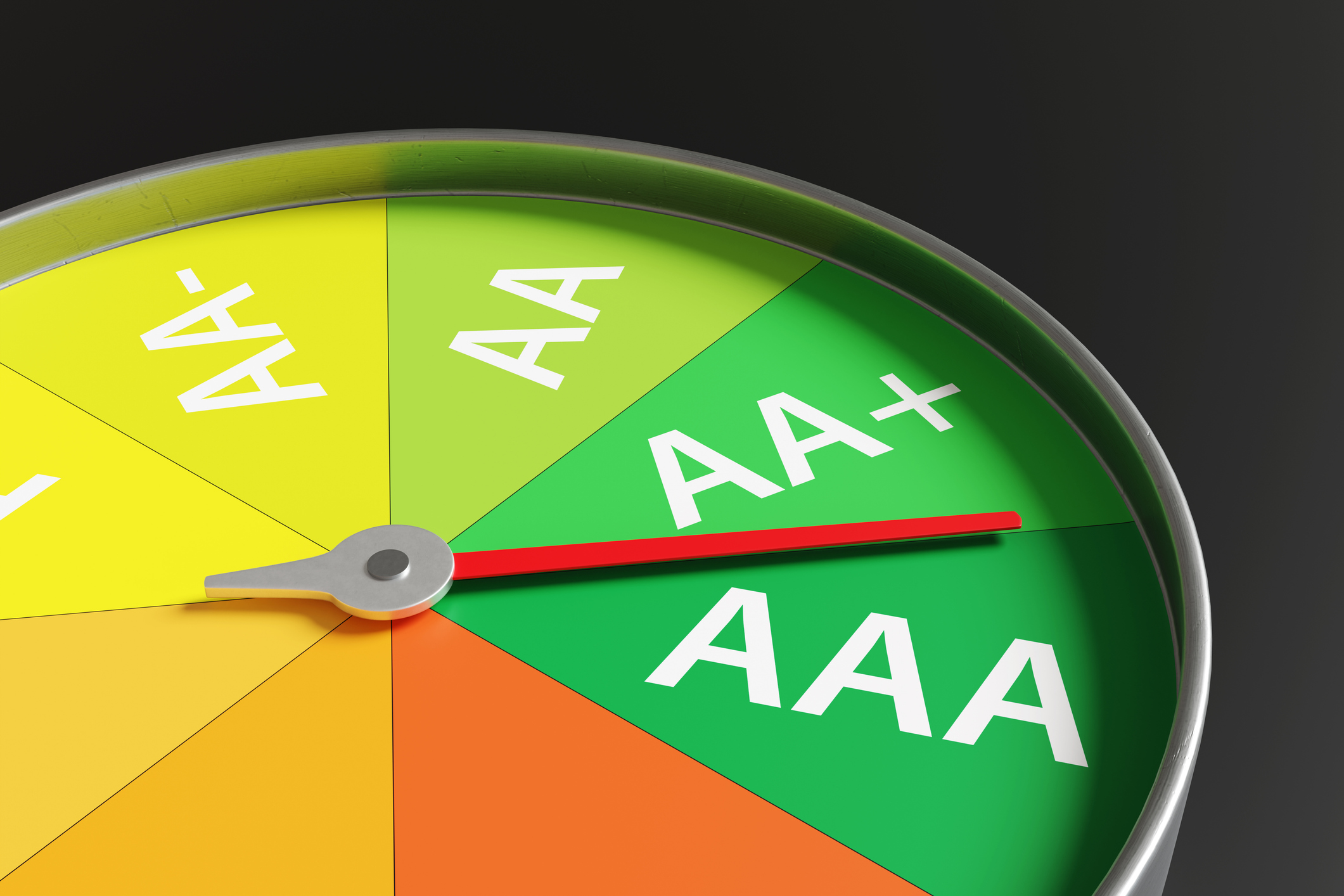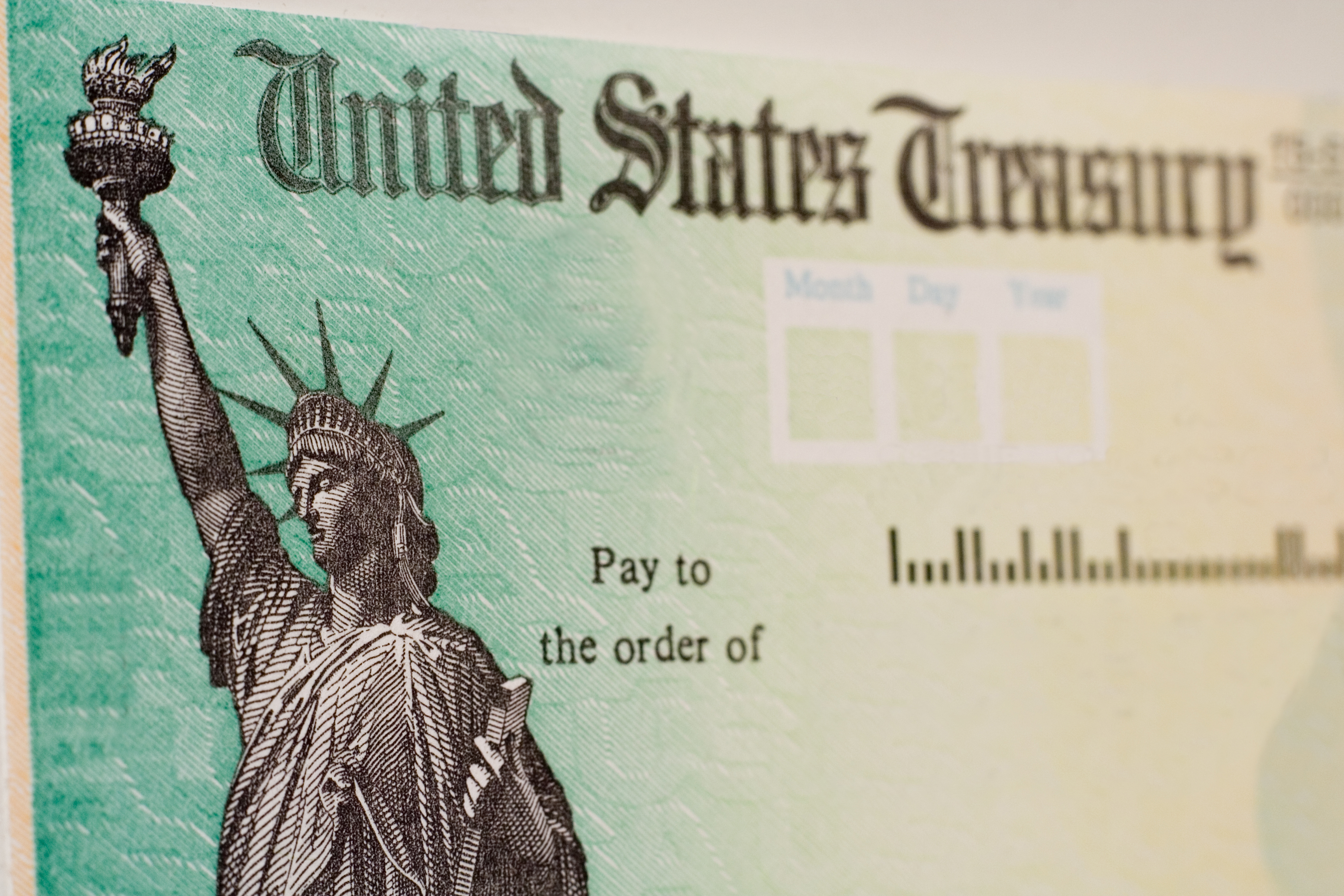Buy U.S. Agency Bonds
You can earn more with non-Treasury government-backed bonds with virtually no additional risk.

Profit and prosper with the best of Kiplinger's advice on investing, taxes, retirement, personal finance and much more. Delivered daily. Enter your email in the box and click Sign Me Up.
You are now subscribed
Your newsletter sign-up was successful
Want to add more newsletters?

Delivered daily
Kiplinger Today
Profit and prosper with the best of Kiplinger's advice on investing, taxes, retirement, personal finance and much more delivered daily. Smart money moves start here.

Sent five days a week
Kiplinger A Step Ahead
Get practical help to make better financial decisions in your everyday life, from spending to savings on top deals.

Delivered daily
Kiplinger Closing Bell
Get today's biggest financial and investing headlines delivered to your inbox every day the U.S. stock market is open.

Sent twice a week
Kiplinger Adviser Intel
Financial pros across the country share best practices and fresh tactics to preserve and grow your wealth.

Delivered weekly
Kiplinger Tax Tips
Trim your federal and state tax bills with practical tax-planning and tax-cutting strategies.

Sent twice a week
Kiplinger Retirement Tips
Your twice-a-week guide to planning and enjoying a financially secure and richly rewarding retirement

Sent bimonthly.
Kiplinger Adviser Angle
Insights for advisers, wealth managers and other financial professionals.

Sent twice a week
Kiplinger Investing Weekly
Your twice-a-week roundup of promising stocks, funds, companies and industries you should consider, ones you should avoid, and why.

Sent weekly for six weeks
Kiplinger Invest for Retirement
Your step-by-step six-part series on how to invest for retirement, from devising a successful strategy to exactly which investments to choose.
The fur is flying in Washington and in cyberspace about the creditworthiness of Fannie Mae and Freddie Mac. At issue is whether bonds issued by the huge but troubled mortgage companies are as safe as U.S. Treasury debt. If the answer is yes, you can earn more than you can with Treasuries with virtually no additional risk.
The background: In September 2008, the government took control of Fannie and Freddie and put them into conservatorship. The move resolved the uncertainty over whether the Treasury would backstop the two government-sponsored enterprises in the event of insolvency. Fannie and Freddie survive and continue to sell bonds, buy mortgages and package home loans into securities. Stockholders got annihilated. In 2007, the combined stock-market value of Fannie and Freddie exceeded $100 billion. Today, the pair are worth $2.4 billion. Their bonds also took a hit but have since recovered.
Agency potpourri. Fannie and Freddie are not the only sellers of non-Treasury government-backed bonds. This group also includes the Tennessee Valley Authority, Federal Farm Credit Banks and Federal Home Loan Banks, and the Government National Mortgage Association, also known as Ginnie Mae (Ginnie doesn't actually issue bonds; it guarantees high-quality mortgage securities assembled by financial institutions). When it comes to safety -- that is, the timely payment of interest and principal -- bond professionals regard all of these agency securities as equivalent to Treasuries.
From just $107.88 $24.99 for Kiplinger Personal Finance
Become a smarter, better informed investor. Subscribe from just $107.88 $24.99, plus get up to 4 Special Issues

Sign up for Kiplinger’s Free Newsletters
Profit and prosper with the best of expert advice on investing, taxes, retirement, personal finance and more - straight to your e-mail.
Profit and prosper with the best of expert advice - straight to your e-mail.
Of course, no one is forcing you to invest in agency bonds. The Treasury, you've probably heard, has plenty to go around. That's one reason that, even though yields have climbed 0.7 percentage point since late December, it's tough to recommend Treasury bonds. The coming supply needed to fund massive deficits is breathtaking.The reason for investing in agency bonds is simply that they yield more than Treasuries. Historically, the spread has been 0.2 percentage point more than Treasuries of the same maturity. One reason for the gap is structural. The market for agency bonds isn't as large as the Treasury market, and new agency bonds aren't issued as frequently as Treasuries are. As a result, agencies have to pay more to sell their debt.
The second reason for the spread, says Lisa More, director of fixed income for Wilmington Trust, a Delaware bank and money manager, has to do with perception. Some investors reason that a wholly owned subsidiary of the U.S. government, such as the TVA, isn't the same as the government itself. There's a sense, says More, "that you might not have as much protection" should an agency run a big loss, as Fannie and Freddie have been doing. This, she adds, is more about fear of "headline risk" than actual risk. Without flinching, More puts up to one-third of her clients' bond portfolios in agency securities.
Your decision to invest in agency bonds should not rest on perceptions and semantics. It should be based on value in the marketplace. If you can get a better yield owning an agency bond instead of an equivalent Treasury, then buy it. Agency securities won't make you rich. And if Treasuries stumble because of rising interest rates (bond prices move inversely with rates), agencies won't be spared. But the tangible reward of going the agency route will add up. Here are examples of the agency yield advantage in mid April:
Two-year notes. Treasury, 1.1% yield to maturity. Federal Home Loan Banks, 1.9%. Fannie Mae, 1.9%.
Five-year zero-coupon bonds. Treasury, 2.7%. Fannie Mae, 3.1%.
Ten-year bonds. Treasury, 3.9%. TVA Electronotes (callable in 2012), 4.1%. Federal Farm Credit, 4.3%.
Because of the chance that interest rates will go higher should the economy break loose, I wouldn't recommend going out longer than ten years.
Profit and prosper with the best of Kiplinger's advice on investing, taxes, retirement, personal finance and much more. Delivered daily. Enter your email in the box and click Sign Me Up.

Kosnett is the editor of Kiplinger Investing for Income and writes the "Cash in Hand" column for Kiplinger Personal Finance. He is an income-investing expert who covers bonds, real estate investment trusts, oil and gas income deals, dividend stocks and anything else that pays interest and dividends. He joined Kiplinger in 1981 after six years in newspapers, including the Baltimore Sun. He is a 1976 journalism graduate from the Medill School at Northwestern University and completed an executive program at the Carnegie-Mellon University business school in 1978.
-
 How Much It Costs to Host a Super Bowl Party in 2026
How Much It Costs to Host a Super Bowl Party in 2026Hosting a Super Bowl party in 2026 could cost you. Here's a breakdown of food, drink and entertainment costs — plus ways to save.
-
 3 Reasons to Use a 5-Year CD As You Approach Retirement
3 Reasons to Use a 5-Year CD As You Approach RetirementA five-year CD can help you reach other milestones as you approach retirement.
-
 Your Adult Kids Are Doing Fine. Is It Time To Spend Some of Their Inheritance?
Your Adult Kids Are Doing Fine. Is It Time To Spend Some of Their Inheritance?If your kids are successful, do they need an inheritance? Ask yourself these four questions before passing down another dollar.
-
 The Most Tax-Friendly States for Investing in 2025 (Hint: There Are Two)
The Most Tax-Friendly States for Investing in 2025 (Hint: There Are Two)State Taxes Living in one of these places could lower your 2025 investment taxes — especially if you invest in real estate.
-
 The Final Countdown for Retirees with Investment Income
The Final Countdown for Retirees with Investment IncomeRetirement Tax Don’t assume Social Security withholding is enough. Some retirement income may require a quarterly estimated tax payment by the September 15 deadline.
-
 Why Investors Needn't Worry About U.S. Credit Downgrade
Why Investors Needn't Worry About U.S. Credit DowngradeFitch Ratings The United States saw its credit rating downgraded for just the second time in history, but experts aren't worried about the long-term damage to stocks.
-
 Bond Basics: U.S. Agency Bonds
Bond Basics: U.S. Agency Bondsinvesting These investments are close enough to government bonds in terms of safety, but make sure you're aware of the risks.
-
 Bond Ratings and What They Mean
Bond Ratings and What They Meaninvesting Bond ratings measure the creditworthiness of your bond issuer. Understanding bond ratings can help you limit your risk and maximize your yield.
-
 Bond Basics: Treasuries
Bond Basics: Treasuriesinvesting Understand the different types of U.S. treasuries and how they work.
-
 Bond Basics: Ownership
Bond Basics: Ownershipinvesting Bonds come in a variety of forms, but they all share these basic traits.
-
 Bond Basics: Pick Your Type
Bond Basics: Pick Your Typeinvesting Bonds offer a variety of ways to grow wealth and fortify your portfolio. Learn about the types of bonds and how they work.